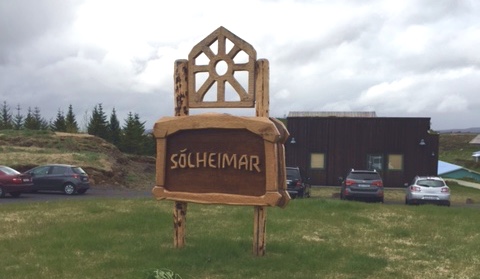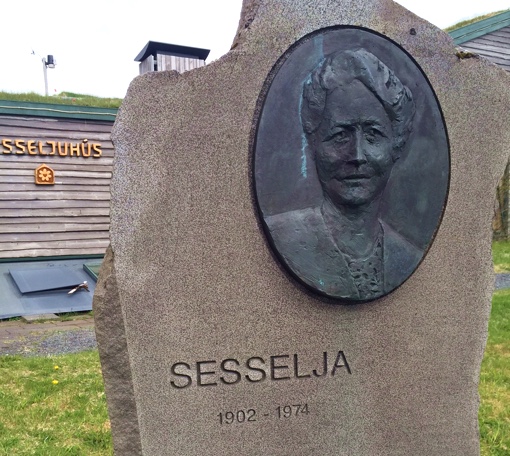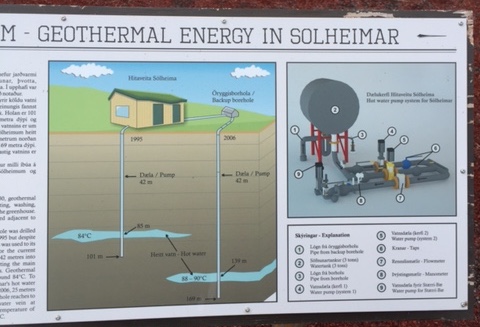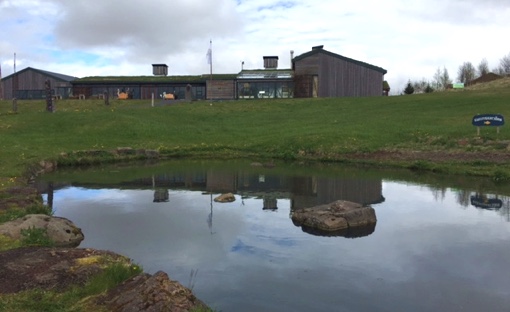Competition: Ethical on tour! Welcome to…
Ethical Superstore is on tour! Well almost, we do have a carbon footprint to think of so we’re actually piggybacking on my holiday to bring you some fantastic ethical inspiration from around the globe and a competition too 🙂
Did you guess where?
Velkomið til Íslands! As the world leader in renewable energy, Iceland is no stranger to looking after our environment so it’s always been high on my must-visit list, and we at Ethical Superstore are big fans. I was intrigued to find out what else the environmentally friendly and socially responsible northerners could teach us, and excited to find out about a dedicated place that could do just that.
Welcome to Sólheimar Eco Village!

Sólheimar is a world renowned sustainable community, one of the oldest sustainable ‘eco villages’ in the world known for its artistic and ecological atmosphere and ethics. It was founded in 1930 and is a small village set out in the countryside with open common spaces and buildings designed to co-exist with the landscape, with all produce grown organically. I was thrilled enough to learn this, but reading more about the village I also learned that it was founded to be socially inclusive and create equal rights for mentally disabled people too.
Social responsibility
On her 28th birthday, 5th of July 1930, the founder Sesselja Hreindís Sigmundsdóttir leased the land and founded Sólheimar caring for mentally disabled people in Iceland. In 1932 they constructed Selhamar, the first building built specifically for the developmentally disabled, with the support of the Icelandic Parliament.

Sesselja insisted that disabled people share the same rights as everyone else. Her commitment to integrating children with and without disabilities sparked controversy at the time as others believed that ‘healthy children might be psychologically or physically damaged from contact with those with disabilities’. Thankfully those views have faded with time and Sólheimar is viewed with pride.
Her decision to feed the children on high-vegetable diets, then quite wrongly thought to be unhealthy, was also highly controversial but provided the stepping stone to becoming well known for their organic production, nursery and forestry today. She is widely considered the first to begin organic horticulture in Iceland or the Nordic countries – well ahead of her time!
Organic food and forestry
In the village nowadays there are organic greenhouses, both for vegetable cultivation and nonfood plants, an organic bakery and cafe, as well as a forestry – in fact the only organic forestry in Iceland.
I stopped in at the lovely Græna Kannan Cafe, which offers only organically certified refreshments and delicious organic pastries from the Naerandi certified organic bakery. It’s clearly an active social hub and is used as a main gathering area for all types of events – what a great way to get the community together!
Sólheimar runs social workshops providing opportunities for residents and also emphasising the use of natural materials, recycling and reuse. All beautifully handcrafted items (including natural skincare and bodycare) are available in Vala, their public market and gallery. Naerandi’s food-processing team produces marmalades, chutney and salsa along with soups, spices and oils all from organically cultivated materials and even sold into stores in the main city, Reykjavik. Needless to say several items are coming home with me as gifts.

Heated by geothermal energy, their very own Sunna Greenhouse produces everything from tomatoes to peppers using crop rotation, biological control measures and natural algae meal – no artificial chemicals. These organic products are sold into Iceland’s major supermarkets, and ‘unattractive’ vegetables are not discarded but used for canning. Sunna is one of the largest greenhouse vegetable producers in Iceland, showing that even a small village can make a big difference!

Olür Forestry is the only certified organic forestry in Iceland and is used by the government to obtain trees for national reforestation projects. There are actually very few trees in Iceland, something that strikes you when you’ve travelled there for a day or two – it’s a very harsh climate and trees used for housing or other needs weren’t replaced enough. Olür say that it’s much harder to raise up plants with organic methods, but these plants have stronger root systems and therefore stand up better in Iceland’s harsh climate. Not using chemicals helps to discover which species thrive best in this area’s conditions and are a better long-term plan.
Eco education
They offer educational packages on sustainable development, discussing requirements for sustainable buildings and the various environmental issues Sólheimar has encountered since its establishment in 1930. Many people visit from around the world to study and work with the village on these important issues. Eco villages are a rising trend – The Global Ecovillage Network has a list of many across the world – and we hope to see many more of these, and on a larger scale too! Very inspiring stuff.

—
Competition
Could you make it happen where you live? Does your village, town or community already do something amazing? Let us know and you could win Ethical Superstore vouchers!
You can enter by:
- Commenting on our Facebook competition post
- Tweeting us @ethicalstore using the hashtag #ethicalontour
- Or you can email us with the subject line ‘Ethical on Tour Competition’
Terms and conditions:
3 prizes of £25 ethicalsuperstore.com vouchers. Closing date 30/06/2015 and the 3 winners will be chosen at random from all valid entries on 01/07/2015. Gangi þér vel / good luck!



